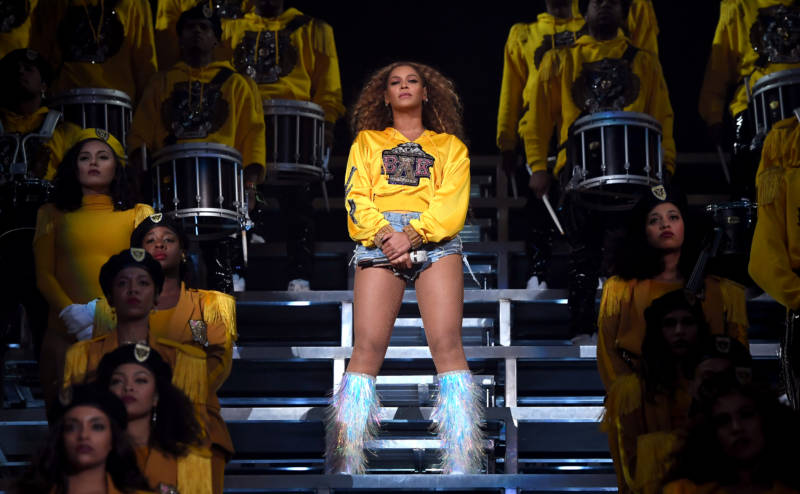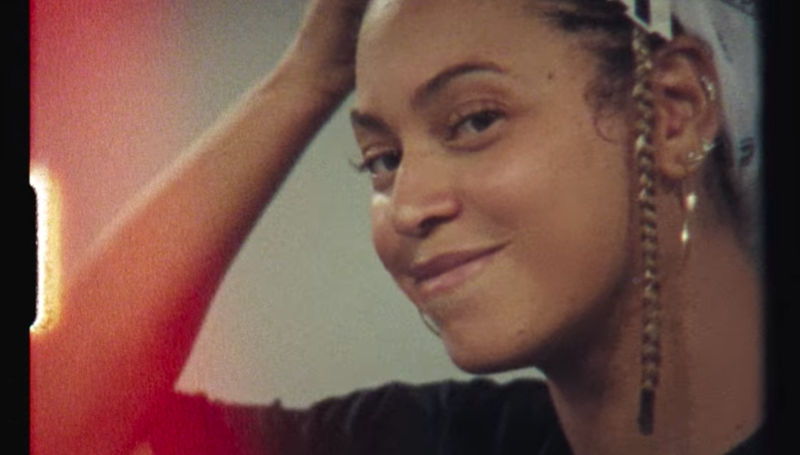It happens about 48 minutes into Homecoming, the new film by Beyoncé that combines her 2018 Coachella performance with behind-the-scenes footage of planning and rehearsals. Queen Bey's voice is heard over a montage of rigorous rehearsal footage, and she sounds entirely drained.
"In order for me to meet my goal," she says, "I’m limiting myself to no bread, no carbs, no sugar, no dairy, no meat, no fish, no alcohol, and..."—she pauses here and sighs a very deep sigh—"I’m hungry."
It's a small moment, but the impact is enormous. Within the first minutes of Homecoming, I noticed Beyoncé's waist-to-hip ratio and wondered for a brief moment how a person could get their body back so quickly and so completely, directly after making two small humans with it. Dance must really be the best exercise, I thought to myself.
I'm sure I wasn't alone in thinking about Beyoncé's figure—her Coachella outfits were specifically designed to enhance it—even while watching one of the greatest performances on earth. Women are socially conditioned to do so, and it takes an awful lot of deprogramming to stop thinking about our bodies, and comparing them to the bodies of other women. This social conditioning means that, fundamentally, we believe Beyoncé looks like Beyoncé because she knows the best exercises.
In that one confessional, she told us what it really takes: deprivation and hunger and exhaustion.



